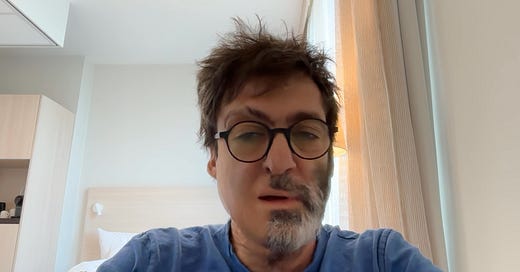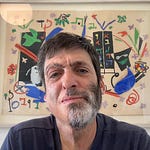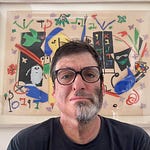I'm currently in a small hotel in Amsterdam with a somewhat broken heart. I was supposed to be on a flight to Israel, but the war between Israel and Iran erupted, leading to cancellations. Who knows for how long. That's not the real tragedy, though. My heartbreak stems from the devastation—the injuries, the deaths, and the immense loss to property and progress.
In economics, there's something called deadweight loss. Normally, if I buy coffee for a dollar more from you, you gain a dollar while I lose one; it’s just money changing hands. But war is perhaps the best example of true deadweight loss. Yes, weapon manufacturers make some money, but the overall destruction and loss is staggering.
My books have been translated into Arabic, and I've received letters from readers across the Arab world, especially from Iran. I suspect there's even an illegal Persian translation circulating. I have many Iranian friends in the U.S., and I've noticed that Israelis and Iranians share many similarities. We could have been great friends if not for the extremists who hijack society. It feels like we’re hostages to bad leadership—too many countries suffer from this.
I’ve been reflecting on the injured and the devastation caused by our leaders' failures. We have different types of people—some more peaceful, others more violent—and how violent individuals often seize control of governments, using hate and brutality to maintain power.
What mechanisms can overcome this? The answer is difficult but I think one way forward is shared institutions. The European Union has made remarkable strides forward. The U.S. had internal wars until it became one country. Shared institutions are crucial—they create benefits from cooperation rather than conflict.
Could we implement something similar globally? Maybe that's tough. But perhaps regional initiatives could work, especially in the Middle East. Every time there's a tragedy, I try to find a silver lining or a path forward—it’s part of my optimistic nature.
What if we listed all possible institutions that could bring people together? What are the low-hanging fruits? Could a new Middle East benefit from shared water or electricity authorities? These could help us unite.
Despite these terribly sad days, I can't wallow in sadness alone. I’m thinking about positive steps forward—identifying institutions that could foster cooperation as a first step.
I don't know how long I'll be in Amsterdam, but I hope for a quick end to hostilities and the beginning of negotiations for a new Middle East. Wishing us all better times ahead.












